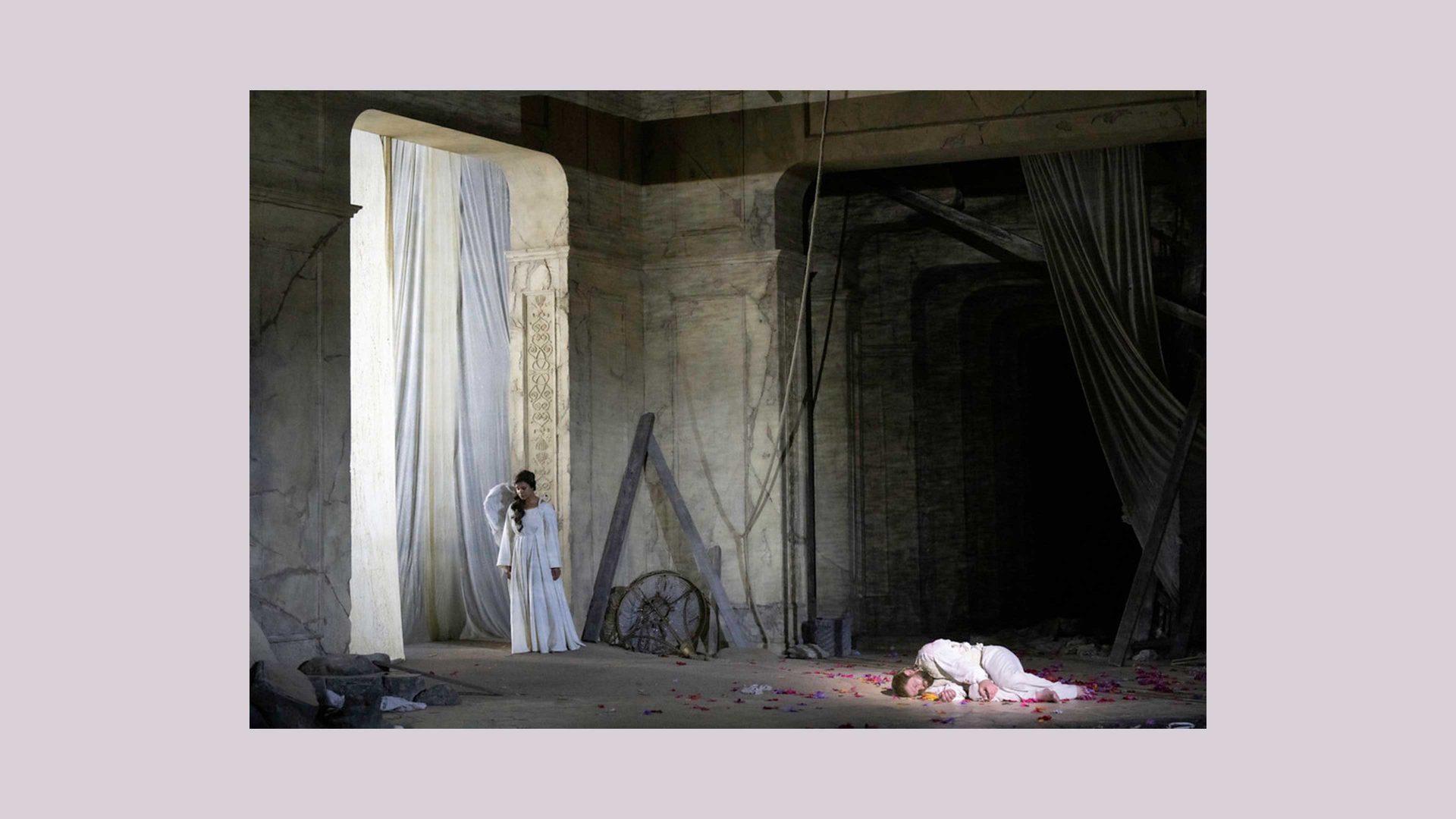The cicada chorus greets me first, a soundscape that throws me back to my Italian childhood. Then, the taxi driver who takes me from Marseilles airport to Aix-en-Provence mistakes me for a proper “Anglais” and announces triumphantly (and I suspect somewhat sadistically) “it is 37 degrees, madame, and it will get even hotter.”
After the unseasonal chill of London, I feel like whooping with joy, but am here for the Aix Festival of Music, not the weather. Established in 1948, the Festival international d’art lyrique d’Aix-en-Provence is one of Europe’s great musical events, staging premieres of new or reimagined works, many on an outdoor stage at the heart of this ancient city.
On morning one, I throw open the curtains to a huddle of terracotta roofs, a cloudless, lazuline sky and the twitter-warble-whirr of an ever-moving tangle of swallows.
I am by no means a real music buff, but very excited about Schoenberg’s Verklakter Nacht and Mahler’s 4th with the Orchestre de Paris conducted by the 28-year-old Finnish wunderkind Klaus Mäkelä. Then there’s Madama Butterfly sung by the Albanian soprano Ermonela Jaho, Monteverdi’s Il ritorno d’Ulisse in patria and a double-bill of Christoph Gluck’s Trojan war family dramas, Iphigénie en Aulide, and Iphigénie en Tauride.
However, it is the very first work, a world premiere of Rameau’s Samson with libretto by Voltaire that sears itself into my mind.
However, oddly, the opera itself no longer exists. The score was lost some 250 years ago. This is the product of a genial – in the French meaning – and an almost archaeological collaboration between Raphaël Pichon, the brilliant 39-year-old French founder of Pygmalion – a world-renowned choir and orchestra, and the German theatre director Claus Guth, 60.
Together, they have fashioned a searingly moving, dramatic and unforgettable rendition of the full biblical story of Samson. His mother ponders the effect of divine destiny on a child who doesn’t seem to fit into the world, a loner endowed with goodness but bewildered by a superhuman strength that ultimately leads him to wreak catastrophic violence on those he loves most. This maternal perspective, narrated by the French actress Andréa Ferréol, includes sections from Colm Tóibín’s novel The Testament of Mary written from the point of view of Jesus’s mother.
The original lost version of Samson was born of Rameau pursuing Voltaire in the hope of some collaboration. Voltaire played hard to get, and then had to flee Paris for a while after publication of his controversial Lettres Philosophiques. Those essays had been written after spending three years in Britain between 1726 and 1729 and were suppressed by the French government. When they did get together, the two men reportedly argued constantly, but brought their Samson to life within a year. It debuted in a private concert, only to be rejected by court censors who deemed their rendition of the biblical story way too risky for a Catholic country.
Voltaire’s words, finally finished in 1736, were then rejected a second time by censors, and while his libretto survived, Rameau’s work did not. Music scholars believe some of his later works, including Castor and Pollux and an opera ballet, Les Indes Galantes, contained bits that were cannibalised or recycled from Samson.
Pichon and Guth have created a truly riveting and profoundly moving drama from this patchwork, one that holds you from the opening bars to the end. When the flawed, despairing hero, sung by the American, Jarrett Ott, loses his eyes, the violence sends a jolt through the audience. The seduction scene with Jacquelyn Stucker as Delilah is tender, sensual.
To do what Guth and Pichon have done and create a kind of palimpsest of scraps of a composer’s existing music, while managing to honour the “feel” of French Baroque language and music – is extraordinary.
I felt I had seen something great. If opera needs a way to entrance new, younger audiences, this production needs to get on the road – perhaps to the chilly north.
Journalist and author Paola Totaro is a former president of the Foreign Press Association in London



